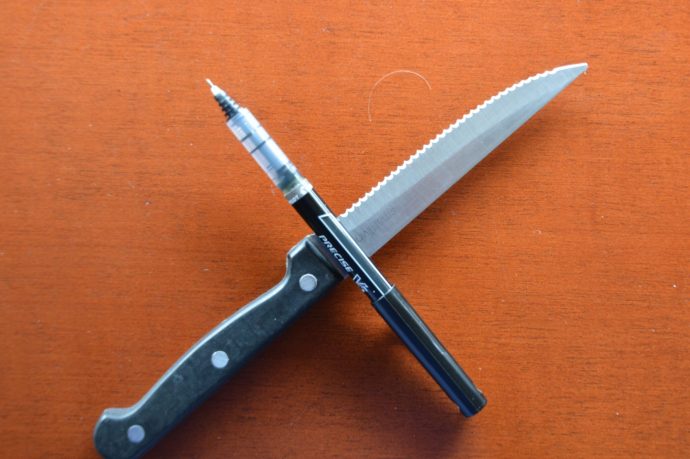On Saturday night at about 6:15 p.m. a 20-year-old outcast attempted to assassinate Donald Trump at a rally in Pennsylvania. The bullet aimed at Trump’s head missed its mark by a few millimeters and went through his ear. As he correctly remarked, God was on his side.
This serious assassination attempt took us back to the 1960s when President John F. Kennedy and then his brother, Robert, the attorney general, were both shot in the head with a bullet. Shocking, unsettling and sad.
In the media attempts to analyze the cause of the latest political incident, a central talking point has been to focus on the issue of dangerous rhetoric that now characterizes modern politics. Phrases such as “heated rhetoric,” “dark Democratic rhetoric,” “the rhetoric of hatred and violence” were in constant use over the weekend following the assassination attempt last Saturday.
The focus was on rhetoric rather than the typical talking points such as gun control, domestic terrorism or the outcast mentality of the disenfranchised. So let’s take a moment to discuss exactly what political rhetoric means.
This term was popularized by Niccolo Machiavelli in 1532 with his book “The Prince.” Machiavelli was the political adviser to the Medici family in Italy, a nation which endured much war and turmoil. The various smaller states within Italy were constantly vying for power and externally France, Italy and Spain all attempted to take over Italy at the time as well. So the counsel Machiavelli offered to the Medici family was taken very seriously and it proved to be effective.
Machiavelli emphasized to the prince the importance of rhetoric as the essential tool which should be used to persuade the public to align with the Medici family. Machiavelli emphasized firstly that for a political speech to get across the intended message one must “exhort and rouse the audience with pomp and circumstance.” In other words, you must first look to impress the audience by telling them your outstanding qualities and impressive experience. This readies the audience to accept the message you are about to give them.
Following this, your speech must be clear, vivid and simple and you should use effective metaphors.
Rhetoric is about the art of persuasion and if ever I have seen a master of rhetoric, it’s Donald Trump. John F. Kennedy, Ronald Reagan and Bill Clinton were masters at this craft and so is Donald Trump. He always arrives at his rallies with pomp and circumstance and always has the red carpet to walk on.
And Donald Trump is also a master in the use of metaphor. His use of the wall metaphor in the immigration debate may be the primary reason he won the first time. The wall metaphor is simple to understand and has a way of sticking in the mind as does his slogan “Make America Great Again.”
The idea of messaging is of concern to Biden’s handlers given the president’s tendency to be so humble, get off message and go on a variety of distracting tangents as he speaks. One reason that Reagan won his elections so easily was that no matter what the press asked him that day, he would stick to a single message for the entire day. Biden has failed to do that, but Trump does it instinctively.
And now we also have incredible images of a bloody Donald Trump raising his fist in defiance with the American flag waving in the background. You can bet that this heroic image will be used by him over the next four months.
Indeed, this is the season of violence with psychotic disgruntled outcasts lashing out. But it is wise to recall the saying that goes back to 500 B.C. which says “the pen is mightier than the sword.” Variations of that phrase have lived for over 2,500 years and it is still as true today as ever.
Words have far more power than acts of violence and the candidate who knows how to use words effectively is the man who will win the election.

